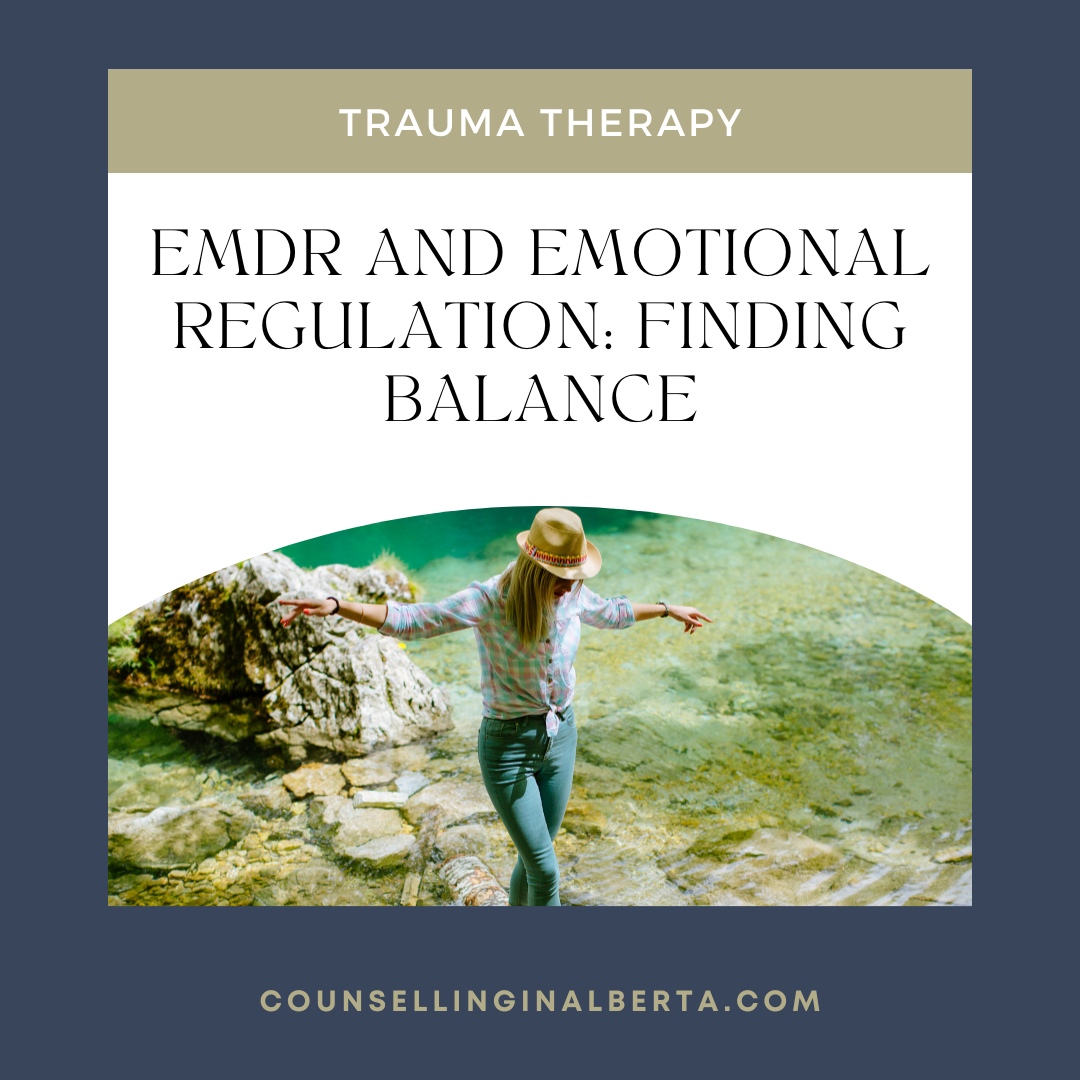EMDR and Emotional Regulation: Finding Balance
How often do you feel overwhelmed, not knowing how to handle your emotions or cope with challenges? But why do we feel this way? There are many reasons why people have trouble controlling their emotions, including past events, current stressors, and underlying psychological or physical factors.
Fortunately, emotional regulation is a skill that you can improve. One practical approach to achieving this balance is through Eye Movement Desensitization and Reprocessing (EMDR) therapy. EMDR helps individuals manage their emotions and find stability by processing traumatic memories and reducing their emotional impact. At Williamson & Associates, we are dedicated to providing compassionate counselling services tailored to support your journey toward emotional well-being, helping you build resilience and find your inner calm.
What is Emotional Regulation, and Why is it important?
Imagine experiencing a traumatic event like a severe car accident. Keeping your emotions in check and staying calm in situations that remind you of the event might be challenging. For example, when driving by the spot on the highway where the accident happened, you might start sweating, breathing shallowly, and feeling your heart racing, feeling an overwhelming urge to avoid the area.
Or, imagine being a first responder, firefighter, police officer, or veteran who has faced numerous traumatic events. Despite your experience, you struggle to keep your emotions under control, feeling overwhelmed by guilt and helplessness, which challenges your attention and relationships. For example, when confronted with similar situations, you may experience flashbacks and extreme emotional reactions, making it difficult to stay calm and focused.
Emotional regulation is important for navigating life's challenges and maintaining inner peace. Self-regulation skills enable you to understand and connect with your emotions. This, in turn, allows you to adapt to different situations and achieve your goals. You can communicate more effectively and maintain healthier personal and professional relationships by managing your emotional responses. Keeping your emotions in check in the workplace can help you stay focused and composed under pressure. Self-control usually leads to better decision-making and performance. It improves your resilience and capacity to manage stress, promoting general well-being in everyday life.
So, these skills are important for building positive relationships and quickly overcoming disappointment and stress.
Benefits of EMDR for Emotional Regulation
Difficulty with emotional regulation can cause everyday stresses to accumulate, negatively impacting health and well-being. This is sometimes a learned behaviour. For instance, if you grew up in a home where emotional expression was either heightened or suppressed, you might not have learned how to understand and express your emotions constructively. Your mental health might also contribute to challenges with emotional regulation. If you experience depression, you may have difficulty getting out of bed and doing everyday tasks because your emotions overwhelm you, making everything seem too much.
Eye Movement Desensitization and Reprocessing (EMDR) therapy works by helping you process and heal from past trauma that may be causing you emotional distress and disconnection from yourself and others. When you've experienced trauma, your brain can get stuck in that moment, making it hard to regulate your emotions in present situations. Eye Movement Desensitization and Reprocessing (EMDR) therapy uses guided eye movements or other forms of bilateral stimulation to help your brain process these memories properly.
During eye Movement Desensitization and Reprocessing (EMDR) therapy sessions, you'll revisit the traumatic memories in a controlled environment, allowing your brain to reprocess them in a way that reduces their emotional charge. As you process these memories, the intense emotions linked to them, such as fear, anger, or sadness, start to diminish.
This process helps you reconnect with yourself and your emotions. As a result, you improve managing your emotions in everyday situations, responding more calmly and appropriately instead of feeling overwhelmed. Over time, this healing enhances emotional regulation, helping you feel more balanced and in control of your life.
Practical Strategies for Emotional Regulation: Tips from a Counsellor in Olds, Alberta
Practical strategies for emotional regulation include grounding techniques to anchor yourself during emotional distress. Here are some strategies you may want to include in your daily routine:
Deep breathing
Diaphragmatic breathing exercises help calm the nervous system by activating the body's relaxation response.
Mindfulness meditation
Mindfulness fosters present-moment awareness, reducing emotional reactivity and helping you stay calm in stressful situations.
Regular exercise
Regular physical activity releases mood-lifting endorphins, reduces stress, and improves sleep, which is vital for managing stress and emotions.
Progressive muscle relaxation
Progressive muscle relaxation exercises reduce physical tension and stress, promoting emotional control.
Healthy nutrition
A nutritious diet supports emotional health by maintaining a balanced mood and energy.
EMDR and Trauma Therapy in Olds, Alberta
Everyday responsibilities and tasks, work and life imbalance, parenting, financial stress, health concerns, and past trauma can all make you feel overwhelmed by emotions.
Eye Movement Desensitization and Reprocessing (EMDR) therapy is helpful for processing and integrating traumatic memories, which can lessen their emotional intensity and how you react to them. Studies show that Eye Movement Desensitization and Reprocessing (EMDR) therapy is highly effective for PTSD and other trauma-related challenges. It can help you build emotional resilience, develop better coping mechanisms, and become more self-aware.
If you're ready to take the next step toward emotional well-being, our qualified counsellors at Williamson and Associates can help. Contact us today for compassionate and personalized support on your healing journey.





